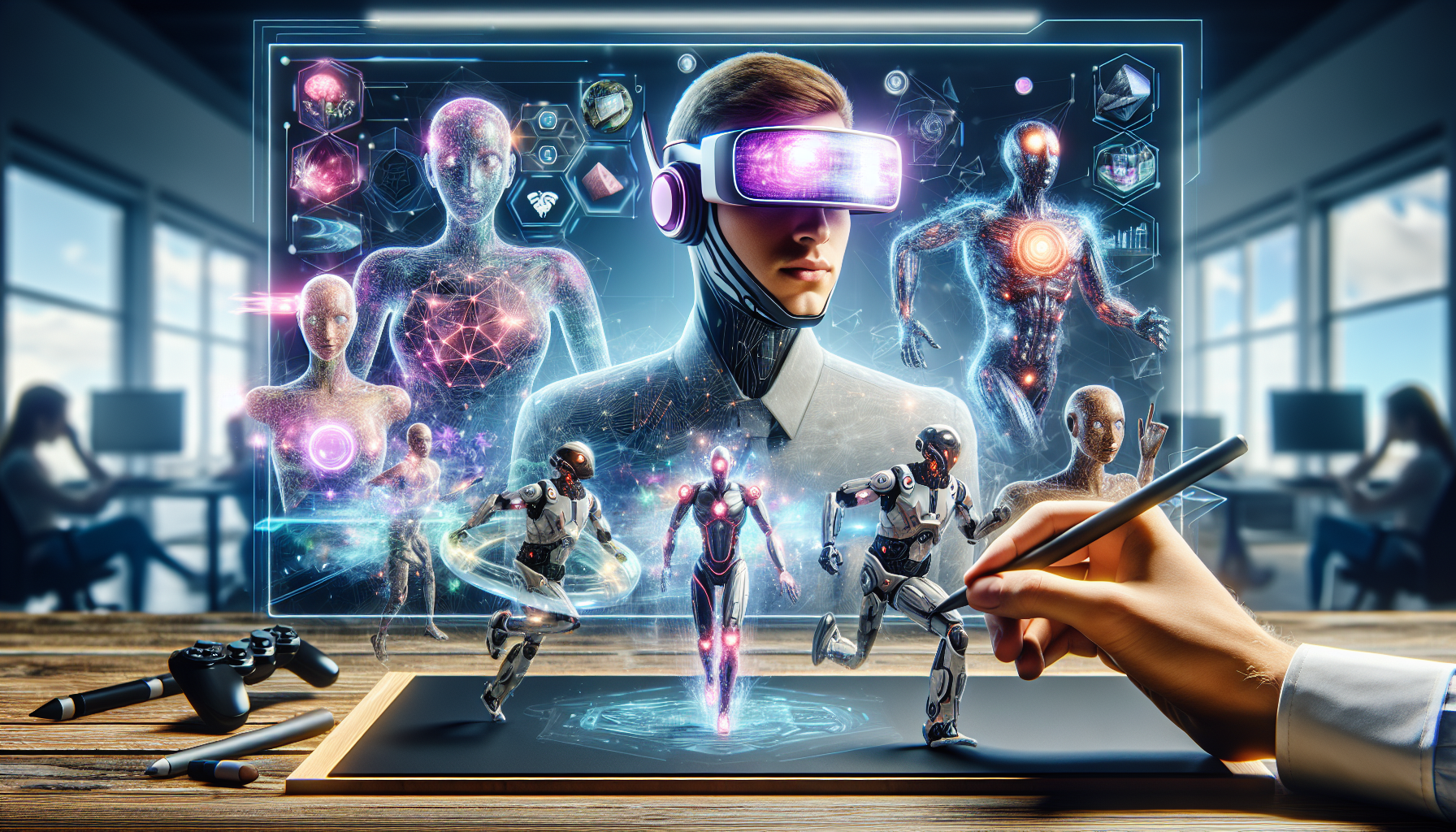Advertisements
Welcome to our blog where we explore how virtual intelligence has revolutionized game development, reducing costs and production time. With the advancement of technology, the use of artificial intelligence and machine learning has become increasingly common in the gaming industry, providing numerous advantages for developers.
Advertisements
In this article, we’ll discuss how AI has been applied to game development, from character and environment creation to streamlining production processes. We’ll explore how AI can help create more immersive and interactive experiences for players, while also reducing costs and speeding up development time.
We’ll also cover the challenges and benefits of incorporating virtual intelligence into games, highlighting success stories and future trends in this field. So, get ready to dive into the fascinating world of virtual intelligence in game development and discover how this technology is changing the way games are created and experienced. Follow our blog to stay up to date with all the latest news and insights on this exciting topic.
Advertisements
The Importance of Virtual Intelligence in Game Development
Over the years, the gaming industry has increasingly benefited from the use of Virtual Intelligence (AI) in the development process. This revolutionary technology has been instrumental in reducing costs and production time, as well as providing a more immersive and interactive experience for players.
Advantages of Virtual Intelligence in Game Development:
- Cost Reduction: Using AI in game development allows for the automation of repetitive and complex processes, resulting in significant cost reduction. With Virtual Intelligence, it is possible to create characters, environments and scenarios more efficiently and economically.
- Agility in the Development Process: AI can speed up the game creation process, allowing developers to test new ideas and prototypes more quickly and effectively. This results in faster production times and, consequently, faster releases to market.
- Player Experience Personalization: With Virtual Intelligence, developers can create games that are more personalized and adaptive to player preferences. AI can analyze player behavior and dynamically adjust difficulty, challenges, and rewards, providing a more engaging and engaging experience.
- Improved Graphic and Sound Quality: Virtual Intelligence is also essential for improving the graphic and sound quality of games. With AI, it is possible to create more realistic environments, more expressive characters and more immersive soundtracks, providing a high-quality visual and auditory experience.
- Smart Interaction with NPCs: NPCs (non-playable characters) are essential to the narrative and gameplay of games. With Virtual Intelligence, it is possible to create more intelligent and realistic NPCs, capable of interacting more naturally and convincingly with players, making the gaming experience more engaging and dynamic.
In short, the use of Virtual Intelligence in game development brings numerous advantages, such as cost reduction, agility in the production process, personalization of the player experience, improvement in graphic and sound quality, and intelligent interaction with NPCs. With the constant evolution of technology, we can expect AI to continue to play a fundamental role in creating increasingly innovative and exciting games.
Conclusion
In conclusion, the use of virtual intelligence in game development has proven to be an effective tool for reducing costs and production time. By applying machine learning algorithms and artificial intelligence techniques, developers can automate repetitive processes, optimizing the creation of scenarios, characters, and game mechanics.
Furthermore, virtual intelligence enables faster and more efficient content generation, allowing professionals to focus on more creative and innovative aspects of the game. This way, companies can launch high-quality products in a shorter period of time, meeting market demands more quickly and effectively.
Cost reduction is also a determining factor in the use of virtual intelligence in game development, since the automation of tasks reduces the need for labor and financial resources. This allows companies to invest in other areas of the project, such as marketing and advertising, increasing the game's chances of success in the market.
In short, the integration of virtual intelligence into game development is a trend that is here to stay, providing countless advantages for companies in the sector. With the ability to reduce costs, optimize processes and speed up production, virtual intelligence is proving to be an indispensable ally in the creation of increasingly innovative and engaging games.




